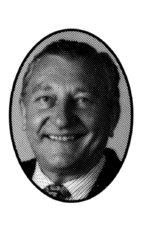Mr. Speaker, the Journals of Thursday, October 19 show the vote on Bill C-106 was deferred by the chief government whip to today at 5.30 p.m. pursuant to Standing Order 45. However, according to Standing Order 45(6)(a):
A division deferred on Thursday is not held on Friday, but is instead deferred to the next sitting day, at the ordinary hour of daily adjournment.
The next sitting day is today and the ordinary hour of daily adjournment is 6.30 p.m., not 5.30 p.m.
The chief government whip cannot unilaterally defer a vote from Thursday to Friday to Monday to any other time but the ordinary hour of daily adjournment, to wit 6.30 p.m. He could do it pursuant to Standing Order 45(7) but as as you know, Mr. Speaker, he would need consent from the three whips for that.
He did not ask me so that leaves him with only one option which is unanimous consent. If it was done by unanimous consent the records would indicate that. The records show the vote was deferred pursuant to Standing Order 45.
Mr. Speaker, if you would also check Hansard and the video for that day you would find that unanimous consent was not sought. In fact the government whip was not in his seat to be in a position to ask for unanimous consent; he was in front of the Speaker's chair. As you know, Mr. Speaker, it is from there that he asks that votes be deferred according to the authority granted him under the standing order. The standing orders in this case do not give him the authority to defer a vote from Thursday to 5.30 p.m. today.
It may not even be necessary for you to rule, Mr. Speaker. The problem can be solved if the House gives its consent to have the vote at 5.30 p.m., which consent I and the Reform Party are prepared to give.
My concern is not really with the time of the vote. The point is we should be careful about following the rules. Our distinguished table officer, Stanley Knowles, once said that the opposition has only the rules for its protection, hence the authorities on parliamentary procedure emphasize the great importance to the opposition of the only protection it has, the protection of the rules.

